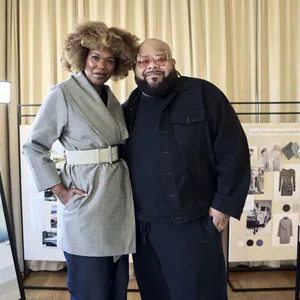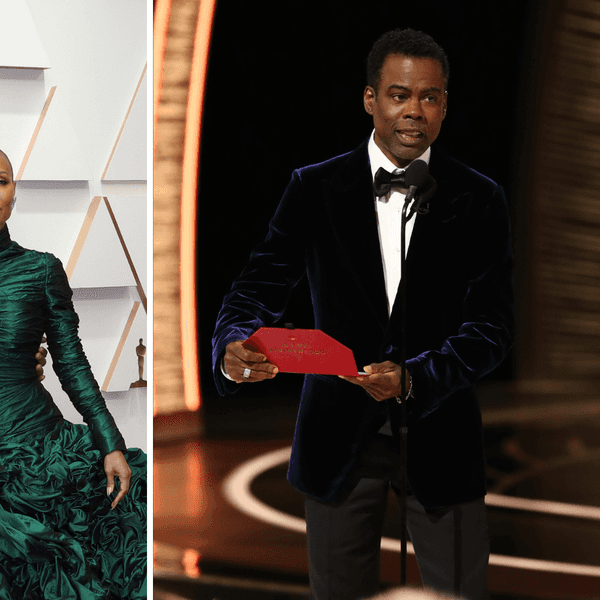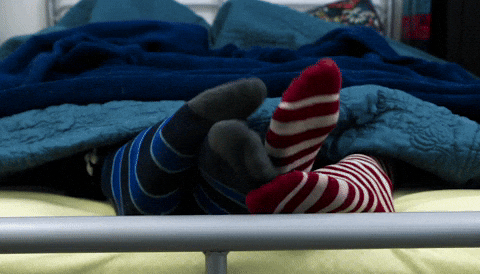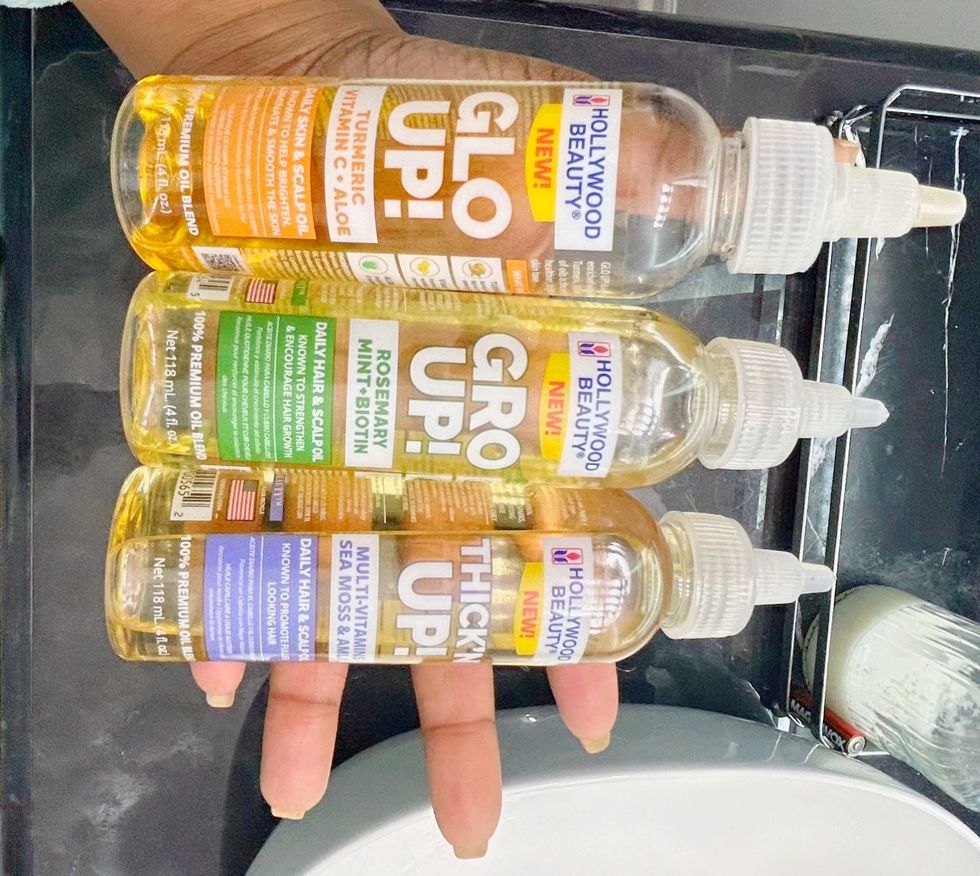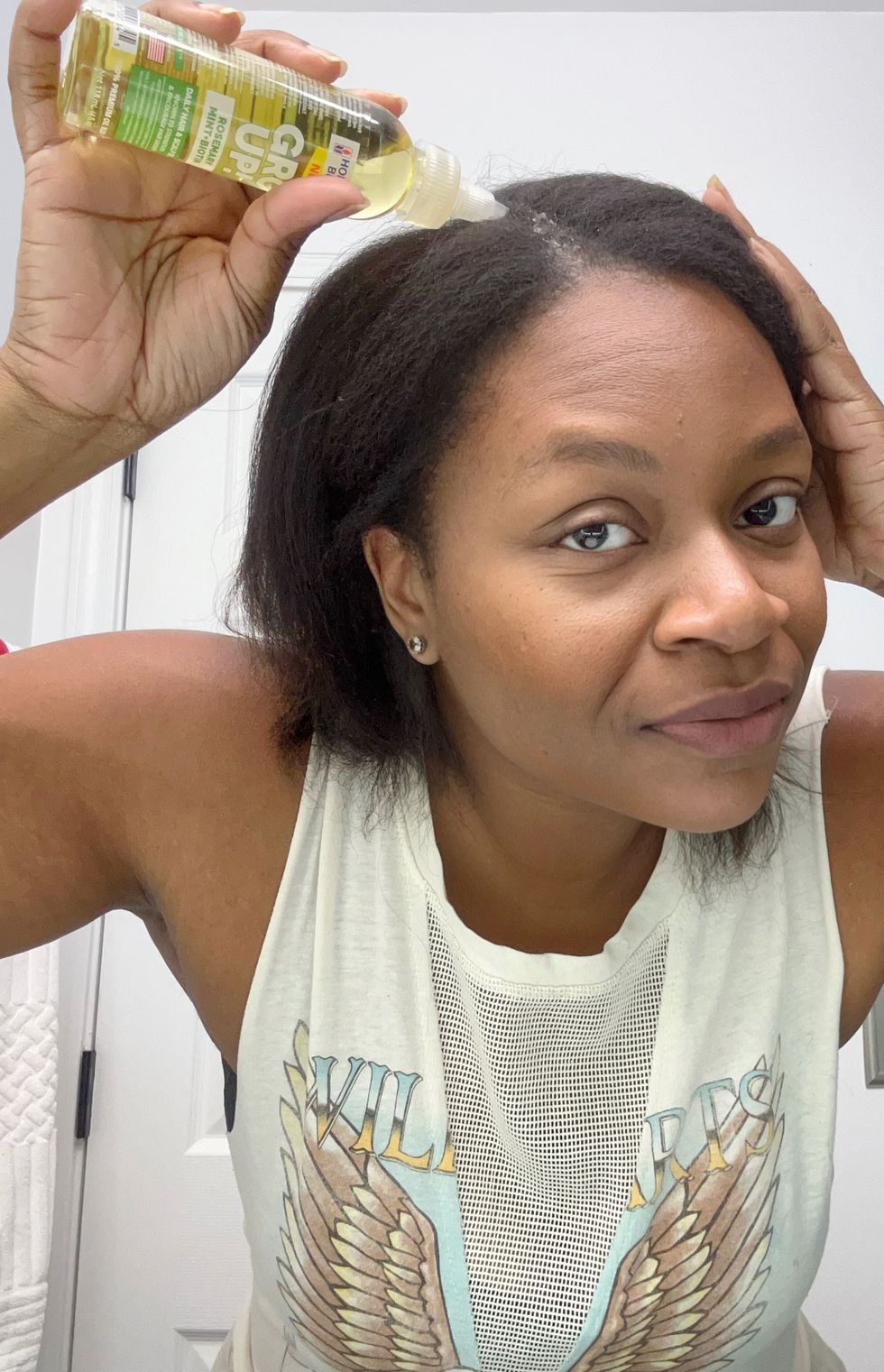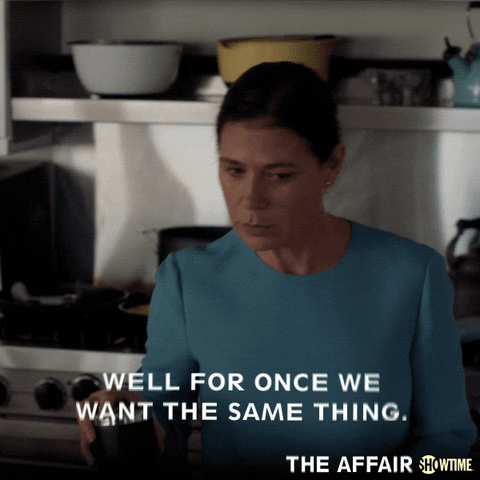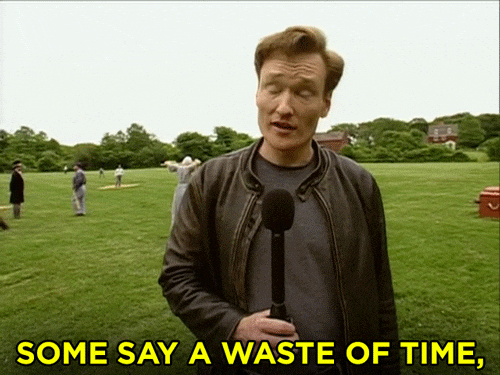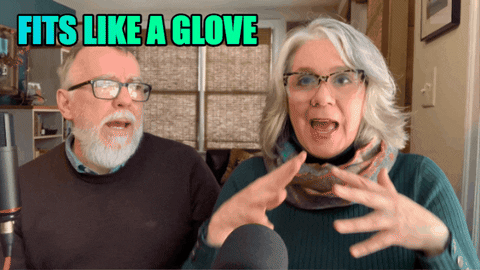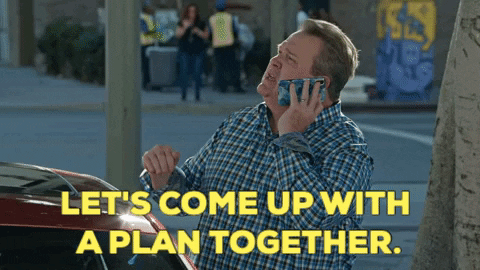The reason why I thought they were a great way to start off this piece is because, although they’ve been together (including living together) for about five years (I believe) and Cey has mentioned getting a lot of social media pressure to propose to Jai, he said that he would move forward when he was ready which happened to be on Jai’s 25th birthday this year — and then, four months later, they eloped. Hmph. What seemed to take forever (to viewers, anyway), it ended up moving swiftly…when Cey was ready to move. And in the meantime, they both resolved to live in the moment and prepare in the meantime. Hmph. In January, they were boyfriend and girlfriend. By December, they became husband and wife. Good stuff.
The tie-in? You know, if there is one thing that I oftentimes encourage my coupled-up clients to do right around this time of the year, it's to have a conversation with their partner about whether or not they think their relationship is stagnant in some way. Synonyms for stagnant include idle, inactive, dormant, sluggish, and stale. The reason why it’s important to ponder over this is because, oftentimes, when relationships end, it’s not because people don’t care for one another anymore; hell, it’s not even that something “big” or “drastic” happened.
Oftentimes, it’s because they allowed their relationship to not develop, advance, progress — and when things aren’t moving forward, things tend to slip backwards or remain stuck…and nothing healthy can come from either of those outcomes.
A musician by the name of Matt Bellamy once said, “You have to evolve. Stagnation breeds boredom,” — and y’all, believe it or not, boredom is another big cause of break-ups. Keeping all of this in mind, I would hate for your relationship to “fade to black” in the upcoming year, simply because stagnation took over.
And so, in the few moments that are left in 2025, ask your partner the following questions. They may provide the clarity you need to know how to keep your relationship strong (or to get it back on track) over the next several months.
Are
We in a Different Place than Where We Were Last Year?
 Giphy
GiphyBack to Cey and Jai for a second. Again, even though commenters were pretty close to being relentless when it came to wondering when Cey was going to pop the question, if you kept up with their content, even though Cey hadn’t proposed yet, one thing that you couldn’t say is that they were in the same place, relationally, year after year. For one thing, they stayed moving about (literally), and they oftentimes expressed goals that they wanted to reach, both as individuals and as a couple.
My point? If the ultimate goal between you and your partner is marriage, and that hasn’t happened yet, there is no way that 365 days have passed, and you shouldn’t be able to say that you’ve seen some relational growth, change, and progress over that period of time.
Are the two of you better at communicating? Has the intimacy between the two of you gotten stronger? Are you both better forgivers? Are you closer friends? Do you know more about one another’s wants and needs?
A stagnant relationship is one that, by definition, lacks development. If you can say, beyond a shadow of a doubt, that you and your partner are better and stronger now than you were this time last year, pat yourself on the back — that is a really good sign that you two are in a really great place.
Do
We Both Still Want the Same Things?
 Giphy
GiphyOne of the best things about a healthy relationship is that it helps you to tame your ego. I say that because if you are serious about making your relationship work and last, it’s going to require compromise, sacrifice, and humility. That’s why it irks me to no end when a relationship ends, and if a person in it is asked why, they will say something along the lines of the other individual didn’t love them simply because they didn’t want what they did.
This is a great example of someone’s ego showing up because the reality is that a person can absolutely love you and even want to be with you, and still not be on the same page about what you want. This is actually a part of the reason why it’s a good idea to do some thorough vetting during the beginning stages of dating (check out “The 'Pre-Commitment Interview' Every Dating Couple Should Have” and “The 'Pre-Sex Interview' To See If You're Both In Sync.”).
Anyway, the only way to know if someone wants what you do is to ask. And if you think that is silly after being with someone for a while, well, I’ll share with you a marriage quote that I oftentimes reference in sessions: “You don't marry one person; you marry three: the person you think they are, the person they are, and the person they are going to become as the result of being.” (Richard J. Needham)
People change all of the time, so if you’ve been in a long-term relationship, you absolutely owe it to yourself, your partner, and the relationship overall to “check in” to make sure that you both ultimately want the same things from your dynamic. Never assume. Assumptions typically backfire — one way or another.
Is
There Any Area Where You Think We Are Wasting Time?

GiphyI have always liked this particular definition of waste: “to consume, spend, or employ uselessly or without adequate return,” and when it comes to this particular article, please remember that if you are pouring into something and not getting much of a return…that is the textbook definition of wasting time, effort, and energy.
So yes, it definitely works in your and your partner’s favor to ponder if the two of you are wasting time in an area. One way to figure this out is to look through the lens of INVESTING vs. SPENDING. Whatever you all are doing, is it an investment where you are seeing a payoff, or are you just spending and not really getting much in return?
I’ll say this — if there is more fighting than peace; if you don’t have the same values; if one or both of you are acting like you are satisfied as far as intimacy goes when you really aren’t; if when you hang out, there feels like a disconnection is there; if one or both of you are walking on eggshells in order to get along, and/or spending time with each other isn’t one of your all-time favorite things to do…all of this are indications of wasting time because, again, you’re giving but…what are you really getting?
Do
We Complement Where We Are Heading As Individuals?
 Giphy
GiphyWhen God decided (because it was him; not Adam) that it was time for Adam to have a companion, the Classic Amplified Version of Scripture states that the Lord said this: “Now the Lord God said, It is not good (sufficient, satisfactory) that the man should be alone; I will make him a helper (suitable, adapted, complementary) for him.” (Genesis 2:18 — AMPC) Hmph, don’t get me started on how much nonsense I see on social media that causes me to wonder if people actually believe this. For now, I’ll just say that it’s important to peep what this verse says a good helpmate looks like: she is suitable, adaptable (that’s a good one), and complementary to her man.
Complementary is a great word. So much, in fact, that several years back, I penned an article for the site entitled, “If He's Right For You, He Will COMPLEMENT Your Life.” When you complement someone, you help to complete them. This is why I wish people would really embrace how masculinity and femininity are designed to BALANCE (i.e., complement) one another. And even beyond that, when it comes to your relationship specifically, where do you and your partner complete each other? Not in the rom-com way so much as where do they “balance you out”?
A married couple who I work with, one of the things that I’m trying to get them to chill out about is embracing that their differences actually can work in their favor if they simply stopped trying to turn each other into carbon copies of themselves (another way that ego manifests, by the way). An example of what I mean is the husband is very chill and cautious in how he moves while the wife is spontaneous and likes to take all kinds of risks. If they embraced the way this could COMPLEMENT both of them as individuals, she wouldn’t be so emotionally high-strung and unnecessarily stressed, and he wouldn’t overthink his way out of potentially great opportunities.
Another favorite quote of mine is “If two people were exactly alike, one of them would be unnecessary.” (Larry Dixon) Although you and your partner shouldn’t be so different that you’re constantly clashing and butting heads, it’s okay to bring different things out of each other by how you complement one another. Spend some time talking about if/how you do. It can reveal quite a bit.
What
Would You Like to Accomplish, Relationally, Next Year?
 Giphy
GiphyRemember how I touched on the fact that boredom can lead to the demise of a relationship? As I close this out, another way to avoid stagnation in your relationship is to create plans for it.
In 2026, where do you want to travel? What new things do you want to try/attempt together? What are the strengths that you want to celebrate and the weaknesses that you want to work on? How do you want to progress spiritually? What needs still need to be met? What wants do you wish to prioritize? What habits do you want to break? What boundaries need to be set? What do you both want to get better at as far as communication goes? What can you do to become better friends, confidants, and lovers?
It’s kind of wild that, although most of us know the quote, “Fail to plan, plan to fail,” many of us literally FAIL at applying it to our relationship. Yet there is data all over the place that supports that if you want to succeed at something, planning is one of the most effective ways to do it.
Just ask Cey and Jai. #wink
Salute to them and Happy New Year to you and your man.
Here’s to plenty of progress…with barely any stagnation, chile.
Featured image by Shutterstock


